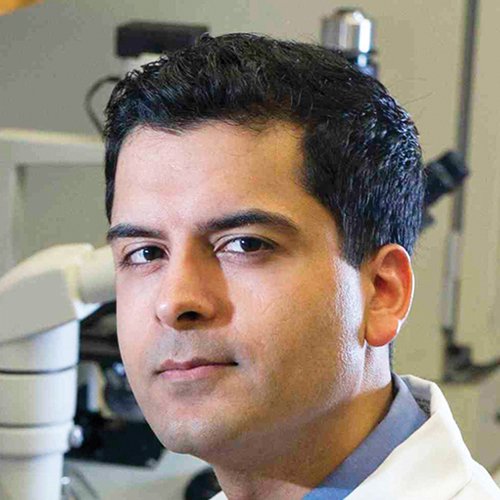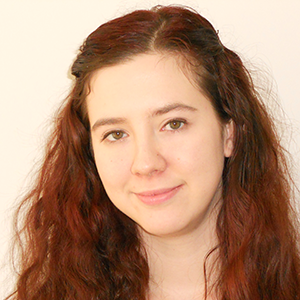Jaffrey called ‘gifted thinker’
for accomplishing so much so quickly
Samie R. Jaffrey of Weill Medical College of Cornell University has been awarded the American Society for Biochemistry and Molecular Biology’s 2014 Young Investigator Award for his advancements in RNA technology and mRNA regulation. The award seeks to recognize outstanding research done in the field of biochemistry and molecular biology by scientists with fewer than 15 years of postdoctoral experience.

"It’s a great honor to be included in the company of the previous recipients ASBMB Young Investigator Award. This award would not have been possible without the remarkable students and fellows who have been members of my laboratory."
—SAMIE R. JAFFREY
The Jaffrey lab researches how RNA regulation affects neuronal growth and development – and especially how novel functions of RNA are involved in intracellular signaling pathways needed for growth and development.
One point of interest is how RNA localization to specific regions of a cell may influence the pattern of protein expression; however, there previously were no simple methods available to visualize RNA in live cells. Jaffrey’s lab developed fluorescent-tagged RNA molecules to determine the location of RNA within live cells. These RNA-fluorophore complexes are composed of an RNA aptamer that binds to a target ligand and an RNA aptamer that binds and activates a fluorophore.
These complexes could aid in the study of splicing, RNA editing and degradation, as well as visualization of metabolite levels and interactions that cannot be detected by Förster Resonance Energy Transfer and the detection of signaling molecules within cells. Through the use of these fluorescent-tagged RNA molecules, Jaffrey’s lab has identified novel RNA mechanisms that may control protein expression.
The recent focus of his lab has been the role of adenosine methylation in mRNA regulation and modification using a novel sequencing approach that targets N6-methyl adenosine residues to target their presence in the transcriptome.
“I know of few individuals who combine Samie’s level of understanding of chemistry, molecular biology and biochemistry and have been able to leverage deep understanding in all of these areas to transform our understanding of RNA biology,” says Rajiv R. Ratan of Weill Medical College of Cornell University and Burke Medical Research Institute. “Samie is a tremendously gifted thinker who has accomplished as much in the first 10 years of his laboratory’s existence as many of us endeavor to achieve in a lifetime."
Jaffrey earned his B.S. in biology from the Massachusetts Institute of Technology in 1992 and then his Ph.D. in neuroscience and M.D. from the Johns Hopkins University School of Medicine in 1999 in the lab of Solomon H. Snyder. Jaffrey is currently a tenured professor of pharmacology at Weill Medical College in New York City.
Jaffrey will receive his award at the 2014 ASBMB annual meeting in San Diego. The presentation will take place at 9:05 a.m. April 29 in Room 6A of the San Diego Convention Center.
Enjoy reading ASBMB Today?
Become a member to receive the print edition four times a year and the digital edition monthly.
Learn moreGet the latest from ASBMB Today
Enter your email address, and we’ll send you a weekly email with recent articles, interviews and more.
Latest in People
People highlights or most popular articles

Simcox wins SACNAS mentorship award
She was recognized for her sustained excellence in mentorship and was honored at SACNAS’ 2025 National Conference.

From humble beginnings to unlocking lysosomal secrets
Monther Abu–Remaileh will receive the ASBMB’s 2026 Walter A. Shaw Young Investigator Award in Lipid Research at the ASBMB Annual Meeting, March 7-10 in Washington, D.C.

Chemistry meets biology to thwart parasites
Margaret Phillips will receive the Alice and C. C. Wang Award in Molecular Parasitology at the ASBMB Annual Meeting, March 7-10 in Washington, D.C.

ASBMB announces 2026 JBC/Tabor awardees
The seven awardees are first authors of outstanding papers published in 2025 in the Journal of Biological Chemistry.

Decoding how bacteria flip host’s molecular switches
Kim Orth will receive the Earl and Thressa Stadtman Distinguished Scientists Award at the ASBMB Annual Meeting, March 7–10, just outside of Washington, D.C.

Thiam elected to EMBO
He was recognized during the EMBO Members’ Meeting in Heidelberg, Germany, in October.

